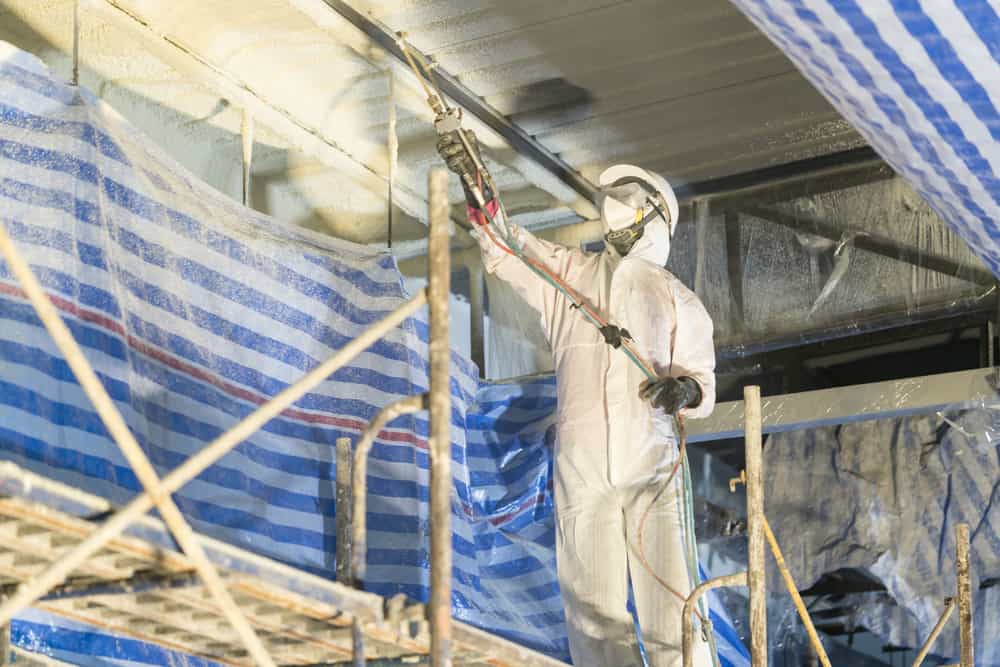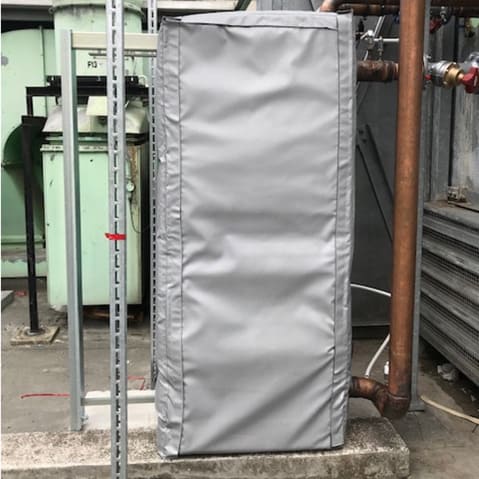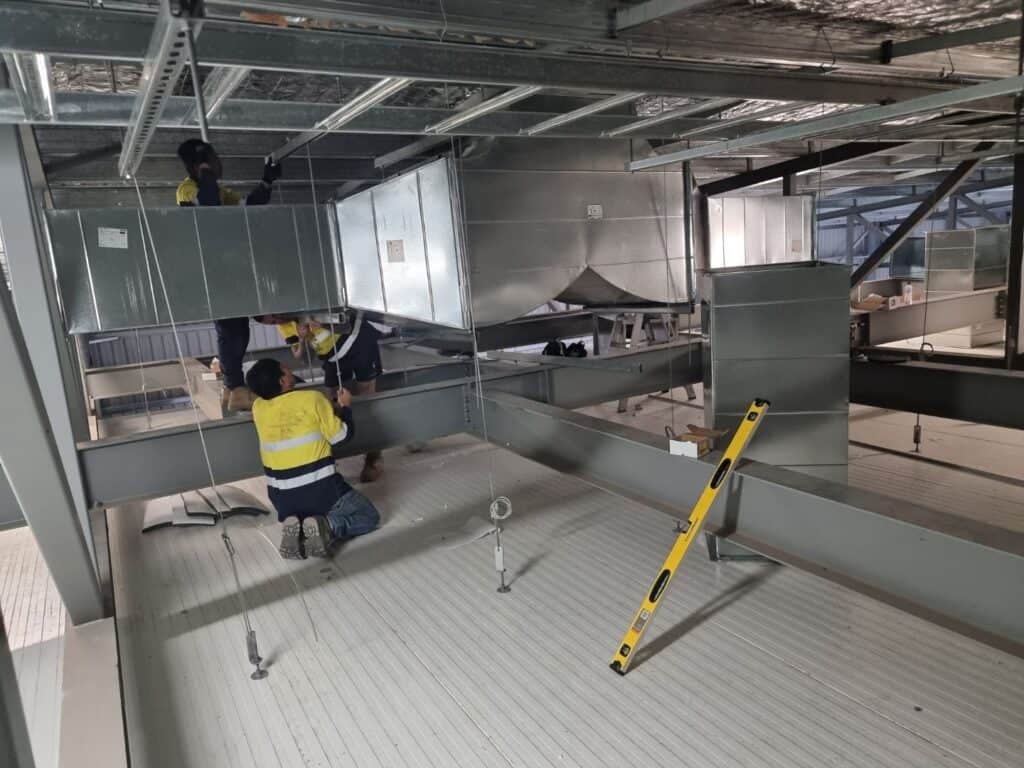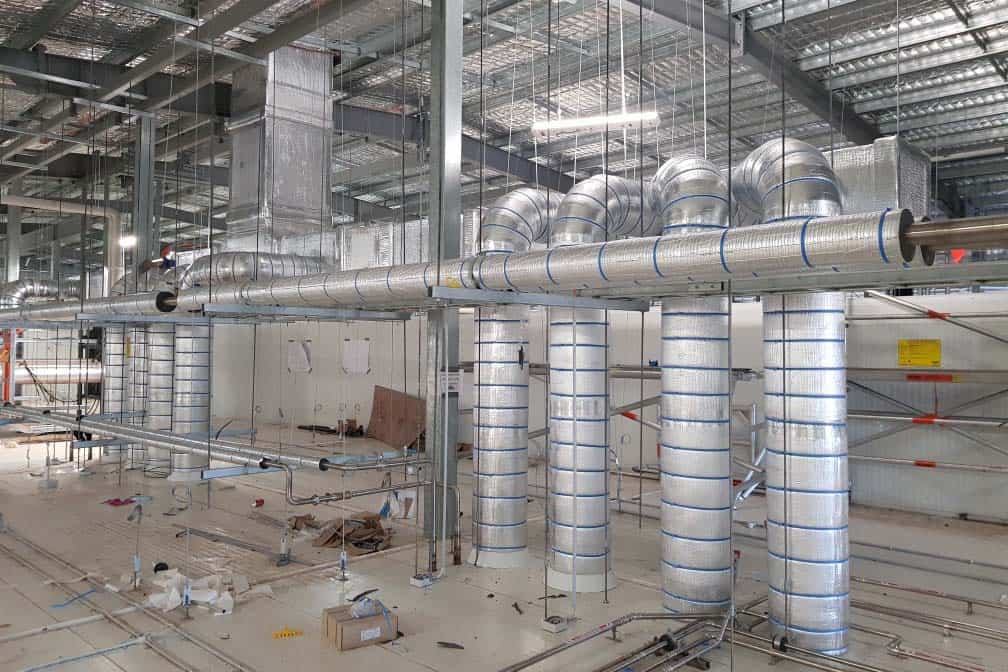In this article, we uncover the best insulation materials for industrial buildings and the settings in which each is most effective.
Effective industrial insulation is essential. It acts as a temperature barrier, protects materials or equipment from outside elements, and helps your operation meet safety requirements, such as moderating heat flow to achieve safe surface temperatures.
While protecting against freezing or overheating is important, high-quality industrial insulation also brings many other benefits. It can increase efficiency by limiting temperature loss or gain, and can create a temperature barrier that will limit climate control costs inside your facilities. Getting bulk insulation batts installed throughout your facility can also provide fire prevention qualities where it matters most.
For these reasons, your business needs to choose the best industrial insulation.
So, what is the most suitable insulation material for industrial settings? The answer depends on your specific needs, space requirements, and your budget.
Polyurethane Spray Foam
Polyurethane spray foam is an effective material for industrial insulation. When professionally installed, this option provides an airtight seal that is highly effective when it comes to regulating temperatures. It also keeps vapours from escaping.
As well as that, it’s very durable, and does not get affected by moisture. As an added bonus, polyurethane spray foam is an excellent sound dampener, making it one of the best soundproof insulation options to for quietening the volume of your facility’s operations.
So, what situations or applications make polyurethane spray foam the best type of industrial insulation?

It is an ideal insulator for buildings as it can function as floor insulation, ceiling insulation, and wall insulation alike. Its moisture-resistant properties make this foam an excellent choice for marine vessels and any other setting where insulation may come into contact with moisture.
Finally, spray foam insulation is very easy to apply, and it does not take up much space. This makes it the best option for controlling temperatures inside or outside of industrial equipment. Furthermore, since the application process involves spraying, you can create an airtight cover in hard-to-reach corners and edges, such as joining wall and roof insulation to seal gaps where these edges meet. Other insulation materials, such as fibreglass, cannot offer this kind of coverage in tight spaces.
Like any other material, polyurethane foam spray requires professional installation. This type of insulation is an investment worth making, considering you will not have to worry about reapplication for a long period of time. This material holds its structure very well, and it will continue to provide insulation without any signs of deterioration.
Fibreglass Insulation Covers & Jackets

Fibreglass is a reasonably priced and flexible solution for insulation. People often associate fibreglass with residential insulation, but it can also have commercial and industrial applications. It is a good insulator, and it does not absorb water, so it will not get damaged by condensation.
For example, insulation jackets and covers are very effective at maintaining the temperature inside machinery. The goal of these coverings is to improve efficiency. They can also increase safety because they protect employees from touching hot surfaces. Furthermore, fibreglass jackets act as thermal insulation, which minimises radiant heat transfer generated by the high temperature of your machinery. This property can help lower your facility’s heating and cooling costs.
Fibreglass insulation is particularly unsafe to install by yourself. It is very important you partner with a qualified insulation installer.
Firstly, in its raw form, fibreglass is dangerous to handle. Professional installation is a must, especially if you are using rolls of fibreglass insulation. Also, if you are using jackets for equipment, you need to be sure that the insulation fits correctly. For this requirement, you need to work with a professional who can create specifically customised insulation jackets that will fit your equipment.
Rockwool Insulation
Rockwool is an excellent option for some situations, such as pipe insulation. It is a similar kind of insulation to mineral wool. It is environmentally friendly because it is often made from recycled materials or natural materials. Furthermore, it has natural, fire-resistant properties.
This means that it is fire-resistant without any additional chemical additives. It can withstand temperatures up to 1,093 °C without losing its properties or releasing any fumes or gases.
The insulation value of mineral wool does not change over time, so it is an excellent, long-term solution.
Glasswool
Glasswool is another environmentally friendly insulation material. It is created using recycled glass, sandstone, and sand. Glasswool is one of the most common types of insulation used across both domestic applications, like houses and apartments, and in commercial buildings.
Typically placed in wall cavities, glasswool provides both thermal and acoustic insulation. It traps air and restricts airflow, making it more difficult for warm air to travel through it.
This is a lightweight, low density insulation type, which makes it simple to mould and install on-site.
Reflective Foil Insulation
Reflective foil insulation, often referred to as foil bubble wrap, is a modern and efficient insulating material used in both residential and commercial settings. Its primary function is to reflect radiant heat, effectively keeping spaces cool in the summer and warm in the winter.
This type of insulation is made up of layers of aluminium foil, air bubbles, and plastic film, which together create an effective barrier against heat transfer. Its thin and flexible nature makes it easy to install in a variety of spaces, including walls, roofs, and floors. Additionally, reflective foil insulation is moisture-resistant, which prevents mould growth and ensures its longevity.
Reflective foil insulation is particularly beneficial in environments that experience extreme temperature fluctuations. It’s an ideal choice for attic spaces where the sun’s radiant heat can significantly increase temperatures. In commercial settings, it is often used in warehouses and storage facilities to maintain a stable temperature.
The installation process is straightforward but requires precision to ensure that the reflective surface is properly exposed and not covered. This insulation type is also an excellent choice for DIY projects due to its ease of handling and installation.
Unlike traditional insulating materials, reflective foil does not pose health risks during installation, making it a safer option for both homeowners and contractors.
So, what is the best type of industrial insulation?
Choosing between polyurethane, fibreglass, rockwool, glasswool, or reflective insulation for your industrial facility will largely depend on the specific needs of your environment. Each insulation type has its own benefits and drawbacks. It is always best to have a fully customised solution.
For example, pre-insulated piping creates a fully sealed environment that is much more effective at carrying hot or cold liquids without temperature loss. Quality insulation installers will be able to source and install this type of piping and add exterior covers, seals, or other components to ensure the best possible performance.
You may need fabricated components to ensure a complete insulation seal in some cases. This type of customised solution can ensure you get comprehensive coverage that fits your equipment, piping, or refrigeration units’ needs. These purpose-made solutions will take up a minimal amount of space.

Where to Find the Best Insulation for Industrial Use?
Since your choice of insulation depends on your needs, your best installation strategy is to work with a personalised insulation services company like Advanced Insulation and Fabrications. We offer a full range of insulation materials and application methods, and are here to install insulation for you that may not be safe for you to handle.
Advanced Insulation and Fabrications has been in business for 20 years, so we have the experience to help you match the type of insulation with your specific needs. We can also help you mitigate risks and ensure proper application for maximum efficiency.
Most importantly, Advanced Insulation and Fabrications is a full-service company, so even if you need different types of insulation, we can provide complete service anywhere in Australia.
We make installing insulation for your industrial environment a breeze. Contact Advanced Insulation and Fabrication today or ask for a quote online.

